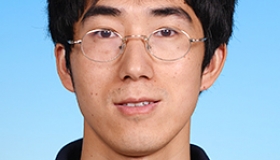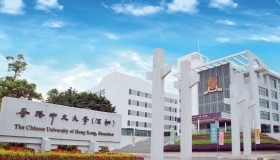Tutorial sessions on reinforcement learning by Prof. Benjamin Van Roy
A Tutorial on Reinforcement Learning
Speaker: Prof. Benjamin Van Roy
Date: 10 am-12 pm on July 30-July 31, 2018
Venue: Room 110, Zhi Xin Building
Abstract
This tutorial will offer an introduction to the area of reinforcement learning, covering some modern algorithms being applied to complex problems and underlying conceptual ideas. A special emphasis will be placed on value function learning and deep exploration.
The following papers cover material that will be discussed in the tutorial sessions:
o https://arxiv.org/pdf/1703.07608.pdf
o https://arxiv.org/pdf/1805.08948.pdf
- Biography
Benjamin Van Roy is a Professor of Electrical Engineering, Management Science and Engineering, and, by courtesy, Computer Science, at Stanford University, where he has served on the faculty since 1998. His research focuses on understanding how an agent interacting with a poorly understood environment can learn over time to make effective decisions. He is interested in questions concerning what is possible or impossible as well as how to design efficient reinforcement learning algorithms.
He has served on the editorial boards of Machine Learning, Mathematics of Operations Research, for which he co-edits the Learning Theory Area, Operations Research, for which he edited the Financial Engineering Area, and the INFORMS Journal on Optimization. He has also led research programs at and/or founded several technology companies, including Unica (acquired by IBM), Enuvis (acquired by SiRF), and Morgan Stanley.
He received the SB in Computer Science and Engineering and the SM and PhD in Electrical Engineering and Computer Science, all from MIT. He has been a recipient of the MIT George C. Newton Undergraduate Laboratory Project Award, the MIT Morris J. Levin Memorial Master's Thesis Award, the MIT George M. Sprowls Doctoral Dissertation Award, the National Science Foundation CAREER Award, the Stanford Tau Beta Pi Award for Excellence in Undergraduate Teaching, and the Management Science and Engineering Department's Graduate Teaching Award. He is an INFORMS Fellow and has been a Frederick E. Terman Fellow and a David Morgenthaler II Faculty Scholar. He has held visiting positions as the Wolfgang and Helga Gaul Visiting Professor at the University of Karlsruhe and as the Chin Sophonpanich Foundation Professor and the InTouch Professor at Chulalongkorn University.




